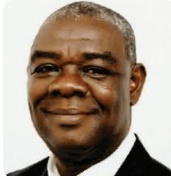Business News of Friday, 4 April 2025
Source: www.ghanawebbers.com
Democracy under siege?

**Socrates on Democracy and Power**
Socrates once warned that democracy could empower the wrong people. He said, “Women will want to be like men, and democracy will give it to them.” He also noted that thieves and fraudsters would seek power through democratic means. This could lead to worse dictatorships than those seen in monarchies.
Some question the relevance of studying Classical Civilization. However, Socrates' insights suggest it should be a required course for all undergraduates.
**Democracy's Evolution in Ghana**
Various forms of democracy have existed over centuries. Colonialism changed effective local governance systems in many tribal societies. Lord Luggard introduced aspects of local governance during colonial rule in West Africa.
Since then, Ghana has adopted different democratic principles. The 4th Republican constitution has faced significant challenges since its introduction in 1992.
**Partisanship and Political Issues**
Extreme partisanship has harmed national unity in Ghana. The "winner takes all" concept is a major issue within the 4th Republic. This has led to political acrimony and tribal bigotry.
The president holds excessive power, acting almost as a modern-day despot. He can appoint or dismiss critical leaders at will, weakening institutions like the Council of State.
**Judicial Concerns**
The constitution allows unlimited appointments of Supreme Court judges by the president. Critics argue this undermines judicial independence and public confidence in the system.
Criminal cases are often viewed through political lenses, complicating justice further. Many institutions exist only on paper or overlap with others, straining resources.
**Public Disillusionment with Governance**
The Office of the Special Prosecutor's performance reflects public disillusionment with democratic structures. Other bodies like CHRAJ have been ineffective despite their theoretical usefulness.
Over 33 years, these weaknesses have deepened political divides in Ghana. Many wonder if the current constitution does more harm than good.
**Presidential Power Dynamics**
Incumbent presidents fear losing their power when considering constitutional changes. Attempts to form committees for constitutional review seem insincere to many observers.
Throughout Ghana’s history, presidential overreach has been evident. Dr. Nkrumah used his powers to suppress dissent during his rule.
**Global Context: Democracy Under Siege**
A friend from the U.S. notes that democracy is under threat there too. President Trump reportedly ignored court orders regarding employee reinstatements after his election loss.
He also faced criticism for attempts at coercing intellectual establishments into silence through funding withdrawal threats.
If this trend continues, accountability may diminish significantly in America—a country known for free speech.
**Regional Comparisons: Burkina Faso's Leadership**
Meanwhile, Burkina Faso’s military ruler appears popular among citizens there. His leadership style contrasts sharply with complex democratic structures elsewhere.
President Traore has made strides in agriculture by importing machinery and utilizing prisoners for farming tasks under specific conditions—an innovative approach that has garnered enthusiasm.
His decree halting vegetable exports to Ghana shocked many there due to potential economic impacts on food prices and inflation rates.
**Agricultural Challenges in Ghana**
Ghana struggles with agricultural productivity despite having arable land available. The government must urgently rethink strategies to improve food supply management and lower inflation rates effectively.
Many young people seek white-collar jobs but lack qualifications or skills needed for employment opportunities—leading some toward gambling as an income source instead of sustainable work options.
Betting companies proliferate while contributing little to economic growth; they primarily benefit operators rather than patrons seeking income through chance games.
Politicians capitalized on public resentment towards betting taxes as a vote-catching strategy during elections—ignoring that winnings should be taxed like other incomes.
This raises questions about whether gambling can truly serve as a sustainable income source or merely distract from deeper economic issues facing unemployed youth today.
The writer is a Fellow of the Chartered Institute of Bankers and an author based in Ghana.










